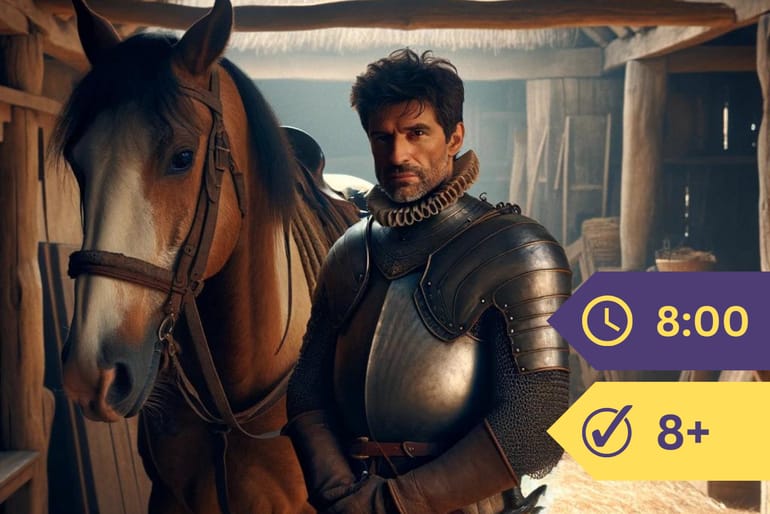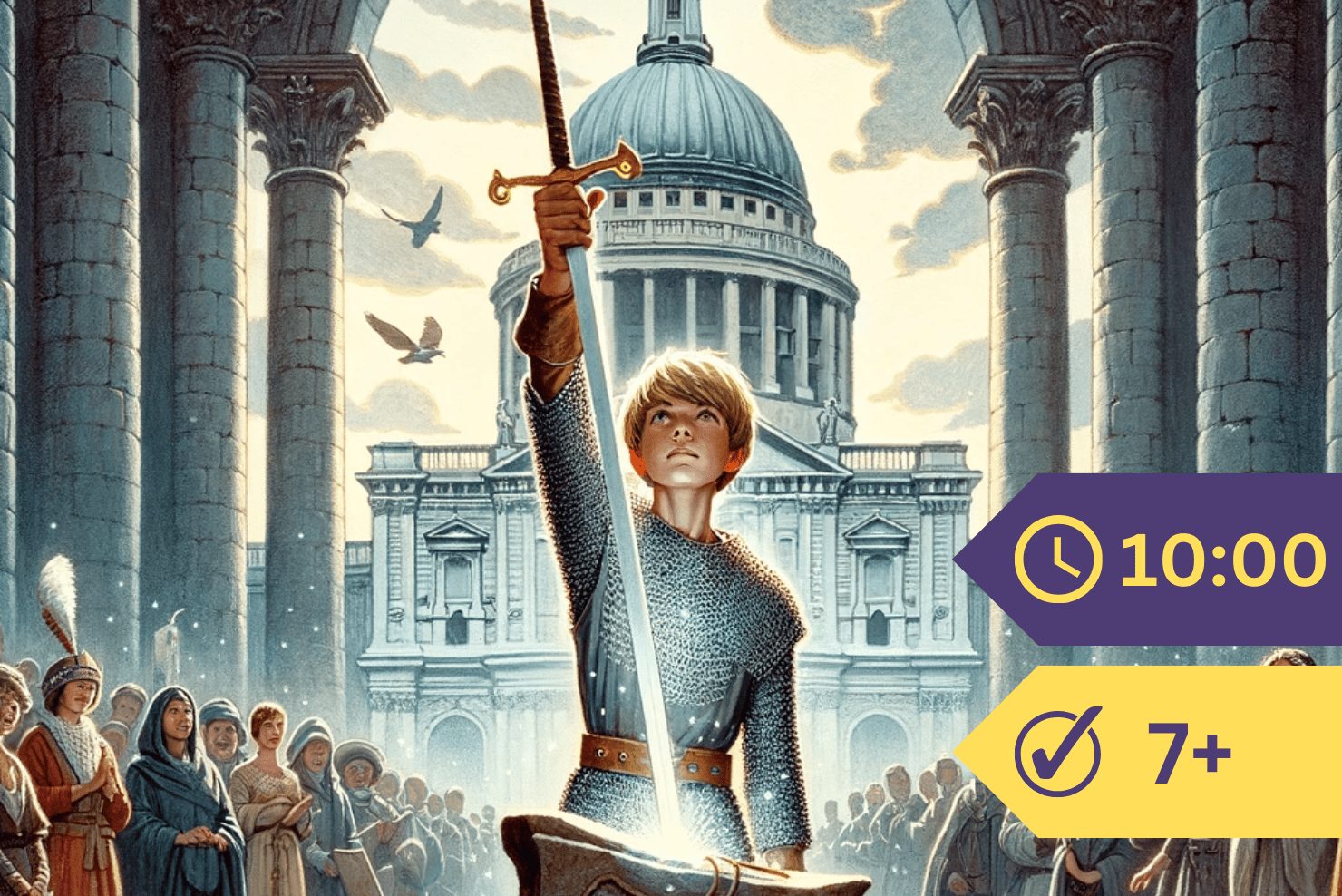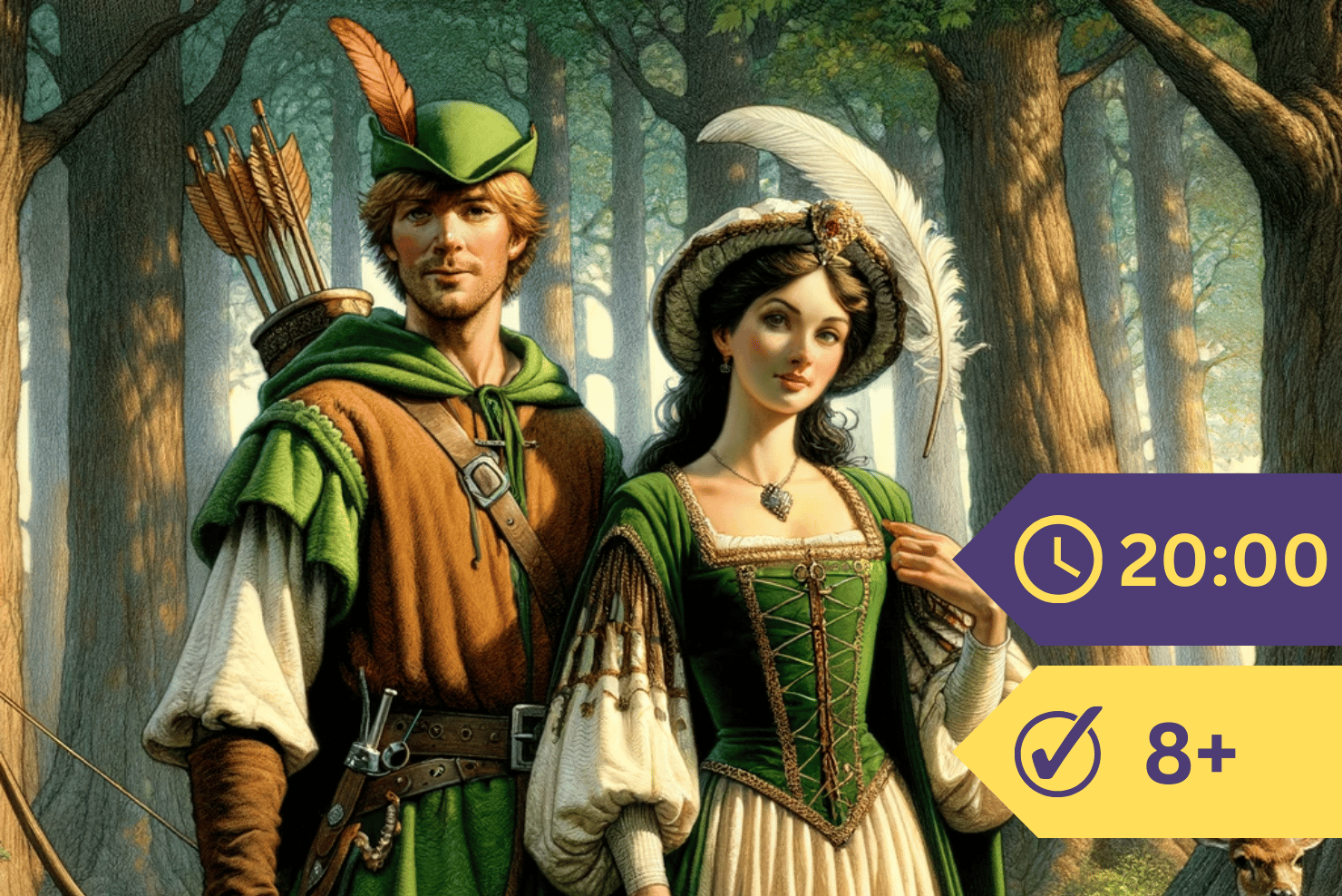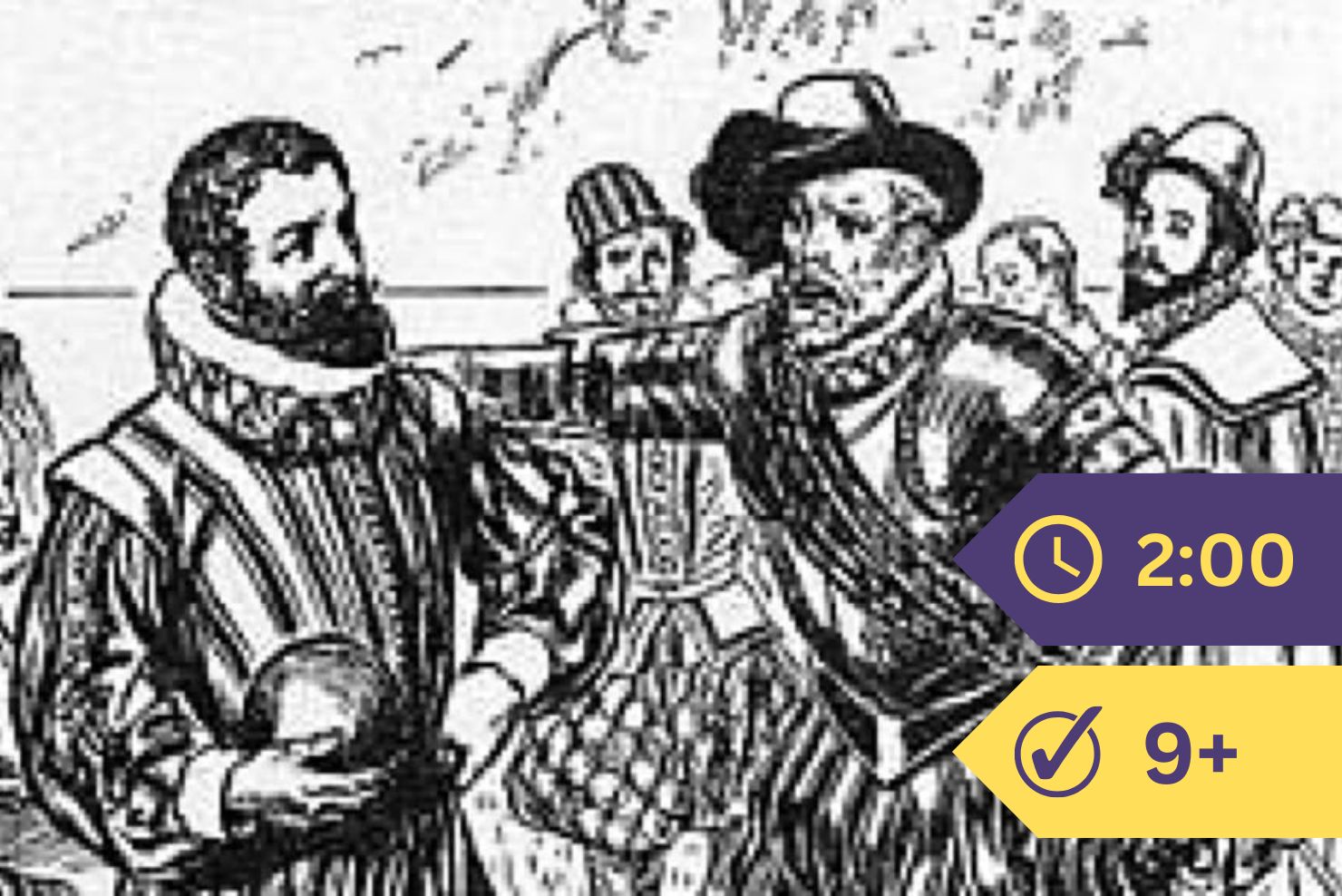Once upon a time there lived in a certain village in a province of Spain called the Mancha, a gentleman named Quixada or Queseda, whose house was full of old lances, halberds, and other weapons. He was, besides, the owner of an ancient target or shield, a raw-boned steed, and a swift greyhound. His food consisted daily of common meats, some lentils on Fridays, and perhaps a roast pigeon for Sunday’s dinner. His dress was a black suit with velvet breeches, and slippers of the same colour, which he kept for holidays, and a suit of homespun which he wore on week-days.
On the purchase of these few things he spent the small rents that came to him every year. He had in his house a woman-servant about forty years old, a niece not yet twenty, and a lad that served him both in field and at home, and could saddle his horse or manage a pruning-hook.
The master himself was about fifty years old, a strong, hard-featured man with a withered face. He was an early riser, and had once been very fond of hunting. But now for a great portion of the year he applied himself wholly to reading the old books of knighthood, and this with such keen delight that he forgot all about the pleasures of the chase, and neglected all household matters. His mania and folly grew to such a pitch that he sold many acres of his lands to buy books of the exploits and adventures of the knights of old. These he took for true and correct histories, and when his friends the curate of the village, or Mr. Nicholas the worthy barber of the town, came to see him, he would dispute with them as to which of the knights of romance had done the greatest deeds.
So eagerly did he plunge into the reading of these books that he many times spent whole days and nights poring over them; and in the end, through little sleep and much reading, his brain became tired, and he fairly lost his wits. His fancy was filled with those things that he read, of enchantments, quarrels, battles, challenges, wounds, wooings, loves, tempests, and other impossible follies, and those romantic tales so firmly took hold of him that he believed no history to be so truthful and sincere as they were.
Finally he was seized with one of the strangest whims that ever madman stumbled on in this world, for it seemed to him right and necessary that he himself should become a knight-errant, and ride through the world to seek adventures and practise in person all that he had read about the knights of old. Therefore he resolved that he would make a name for himself by revenging the injuries of others, and courting all manner of dangers and difficulties, until in the end he should be rewarded for his valour in arms by the crown of some mighty empire. And first of all he caused certain old rusty arms that belonged to his great-grandfather, and had lain for many years neglected and forgotten in a corner of his house, to be brought out and well scoured. He fixed them up as well as he could, and then saw that they had something wanting, for instead of a proper helmet they had only a morion or headpiece, like a steel bonnet without any visor. This his industry supplied, for he made a visor for his helmet by patching and pasting certain papers together, and this pasteboard fitted to the morion gave it all the appearance of a real helmet. Then, to make sure that it was strong enough, he out with his sword and gave it a blow or two, and with the very first blow he spoiled that which had cost him a week to make. To make things better he placed certain iron bars within it, and feeling sure it was now sound and strong, he did not put it to a second trial.
He next examined his horse, who though he had nothing on him but skin and bone, yet he seemed to him a better steed than Bucephalus, the noble animal that carried Alexander the Great when he went to battle. He spent four days inventing a name for his horse, saying to himself that it was not fit that so famous a knight’s horse, and so good a beast, should want a known name. Therefore he tried to find a name that should both give people some notion of what he had been before he was the steed of a knight-errant, and also what he now was; for, seeing that his lord and master was going to change his calling, it was only right that his horse should have a new name, famous and high-sounding, and worthy of his new position in life. And after having chosen, made up, put aside, and thrown over any number of names as not coming up to his idea, he finally hit upon Rozinante, a name in his opinion sublime and well-sounding, expressing in a word what he had been when he was a simple carriage horse, arid what was expected of him in his new dignity.

The name being thus given to his horse, he made up his mind to give himself a name also, and in that thought laboured another eight days. Finally he determined to call himself Don Quixote, and remembering that the great knights of olden time were not satisfied with a mere dry name, but added to it the name of their kingdom or country, so he like a good knight added to his own that of his province, and called himself Don Quixote of the Mancha, whereby he declared his birthplace and did honour to his country by taking it for his surname.
His armour being scoured, his morion transformed into a helmet, his horse named, and himself furnished with a new name, he considered that now he wanted nothing but a lady on whom he might bestow his service and affection. “For,” he said to himself, remembering what he had read in the books of knightly adventures, “if I should by good hap encounter with some giant, as knights-errant ordinarily do, and if I should overthrow him with one blow to the ground, or cut him with a stroke in two halves, or finally overcome and make him yield to me, it would be only right and proper that I should have some lady to whom I might present him. Then would he, entering my sweet lady’s presence, say unto her with a humble and submissive voice: ‘Madam, I am the Giant Caraculiambro, lord of the island called Malindrania, whom the never-too-much-praised knight Don Quixote of the Mancha hath overcome in single combat. He hath commanded me to present myself to your greatness, that it may please your highness to dispose of me according to your liking.”
You may believe that the heart of the knight danced for joy when he made that grand speech, and he was even more pleased when he had found out one whom he might call his lady. For, they say, there lived in the next village to his own a hale, buxom country girl with whom he was sometime in love, though for the matter of that she had never known of it or taken any notice of him whatever. She was called Aldonca Lorenso, and her he thought fittest to honour as the Lady of his Fancy. Then he began to search about in his mind for a name that should not vary too much from her own, but should at the same time show people that she was a princess or lady of quality. Thus it was that he called her Dulcinea of Toboso, a name sufficiently strange, romantic, and musical for the lady of so brave a knight. And now, having taken to himself both armour, horse, and lady fair, he was ready to go forth and seek adventures.






